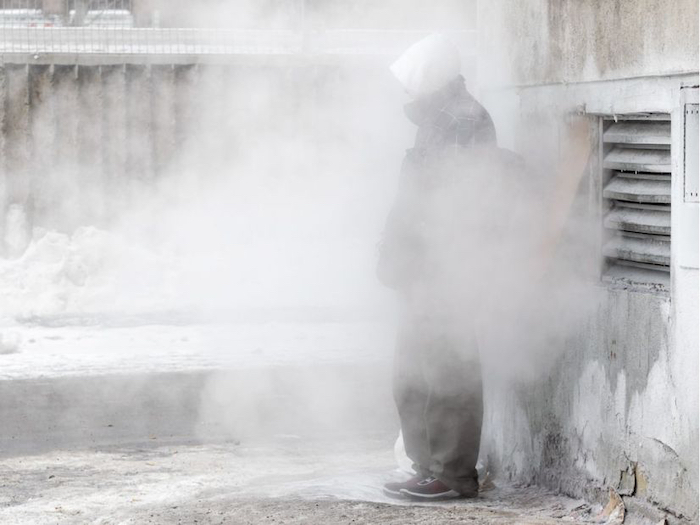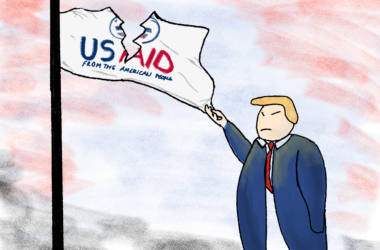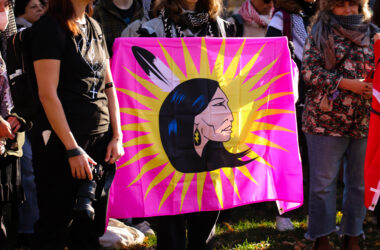On Jan. 6, Quebec Premier Francois Legault announced that an 8 p.m. to 5 a.m. curfew would be in effect from Jan. 9 until at least Feb. 8. When asked about exemptions for unsheltered Quebecers, Legault falsely claimed that there is enough room for the unhoused in Montreal’s shelter infrastructure, leaving community organizations to fill in the gaps. While the response to Legault’s statement has rightfully been critical, it is disheartening to see many well-intentioned volunteers wondering how to help, and coming up blank.
This paralysis speaks to a troubling trend in citizen engagement on the question of supporting unhoused populations: That of always being in emergency aid mode. Certainly, the spike in the number of unsheltered people due to the pandemic has introduced a new need to put out fires, but as citizens focus on issues ranging from food insecurity, to the lack of public toilets, to the need for larger shelters, creative solutions to relieve pressure on the shelter system are not receiving the attention they deserve. As the valuable time and financial resources of volunteers flood in, immediate suffering is addressed. At a certain point, however, the short-sighted distribution of these resources can frustrate efforts instead of helping them. When new emergencies come up, such as COVID-19 outbreaks or curfew measures, shelters need to focus on expanding their basic offerings to accommodate new unhoused populations. Volunteers, however, have the luxury of pausing to consider where they are best suited to help, and would do well to use this time responsibly.
Our inability to move past reactionary campaigning leads to an increasingly fragile service infrastructure. As the unsheltered population continues to grow, offering immediate-aid solutions alone will continue to create a rabbit hole demanding further marshalling of resources. Instead of pouring everything we have into meal handouts, volunteers should support a diversity of tactics that have been long promoted by perennially active advocates. Shelters and other community organizations do sometimes find themselves not in emergency mode, which is surprising given chronic underfunding from Quebec’s Ministry of Health and Social Services. In these situations, leaders have focussed on ambitious housing solutions, funding envelopes, and decolonizing the field to address the fragile state of intervention for the unsheltered.
During the pandemic, students and other Montrealers have come out in impressive numbers to fill in crucial gaps, notably through the provision of food on the weekends. Some have started to ask important questions about the role of shelters, showing up to support the Notre Dame campers who refused shelter solutions they critiqued as paternalistic and unsafe even as they were evicted by a demonstrably racist police force. A McGill original, Meals for Milton-Parc, has undertaken an ambitious program of distributing resources such as food, clothing, and menstrual hygiene products to the Inuit community on Milton and Parc as well as the First Nations individuals on the corner of Saint-Urbain and Sherbrooke. However, students newly looking to get involved may be much more effective agents of change by pressuring Quebec’s Ministry of Municipal Affairs and Housing and the Ministry of Health and Social Services—neither of which have acted quickly enough to set up supported social housing. Emphatically, having every well-intentioned citizen handing out meals alone is not an effective way to show up for the unsheltered.
Activists would do well to heed trans activist, writer, and law professor Dean Spade’s warning in his 2020 essay, “Solidarity Not Charity,” in which he argues that activists must avoid self-congratulation and paternalism. Social justice can only be achieved by recognizing people’s dignity to direct their own path to improvement, and offering resources as a hand up, not a hand out. We should not assume people will be staying on the street forever and simply give them the socks, shelter beds, and granola bars they need to get through the day. Non-profits and engaged citizens alike must ask themselves where the line is between actually helping and simply using resources to pay salaries and feel good.









